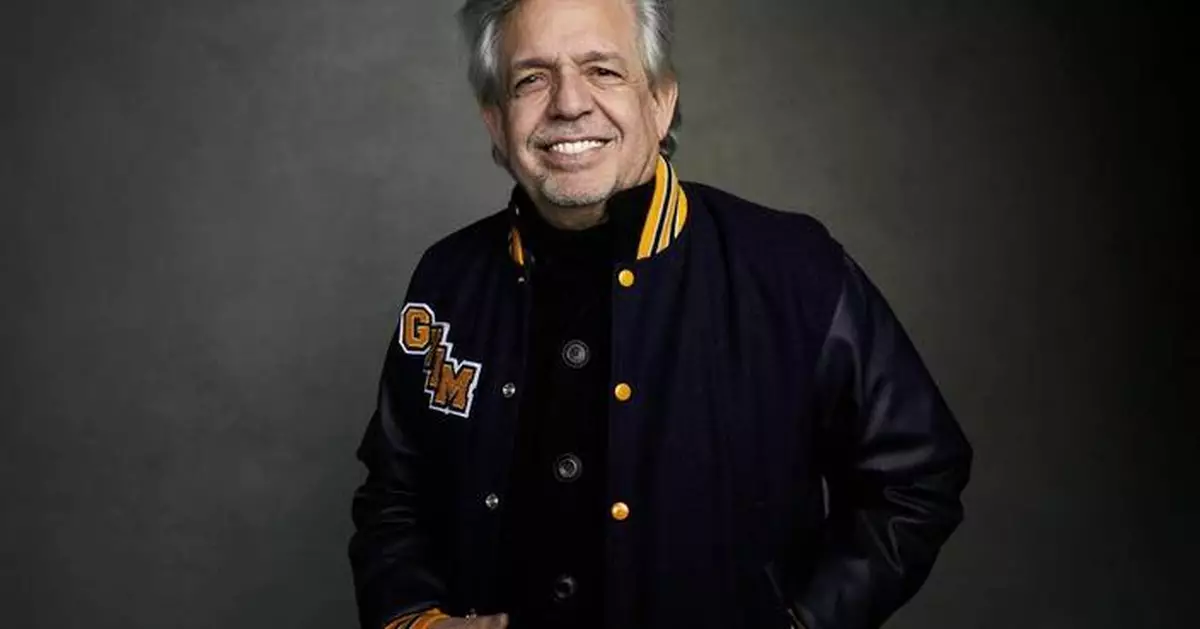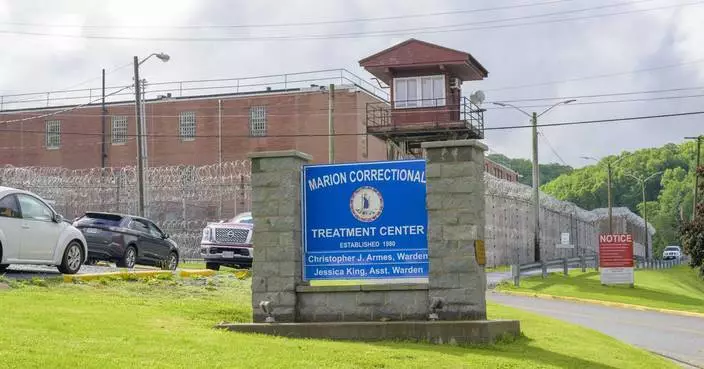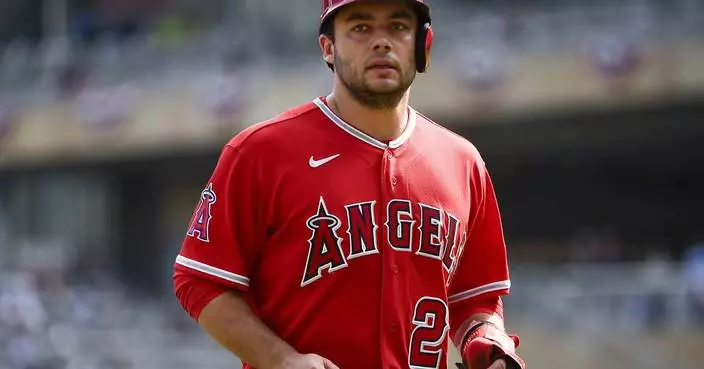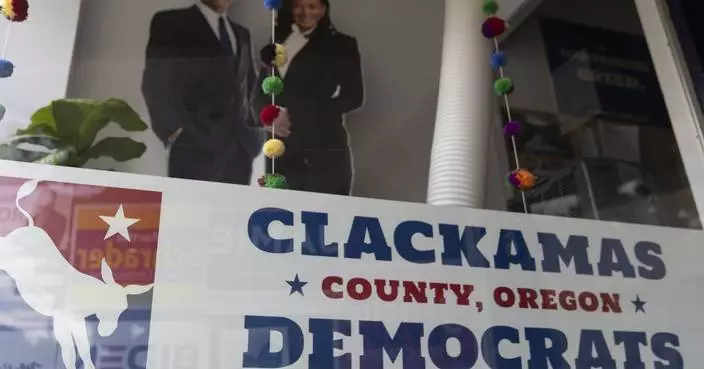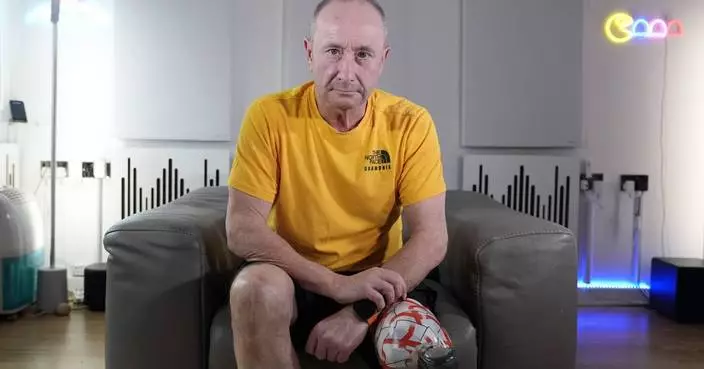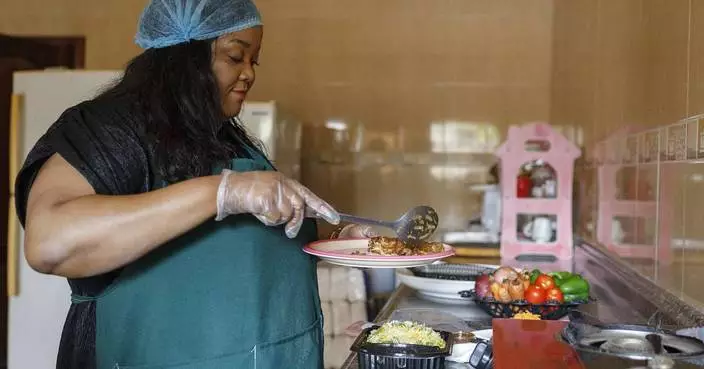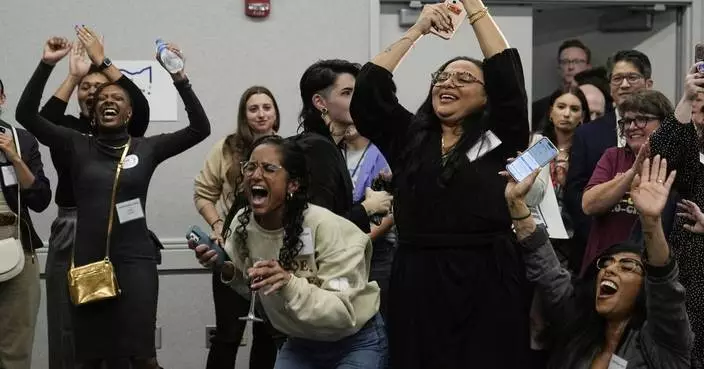Luis A. Miranda Jr. was just 19 years old when he arrived in New York City from a small town in Puerto Rico, a broke doctoral student badly needing a job.
It was 1974 — decades before “Hamilton,” the Tony Award-winning musical created by his son Lin-Manuel, became a sensation and brought his family international recognition and unexpected fortune — when a nonprofit focused on Puerto Rican youth hired Miranda as a researcher in its office a few blocks from the Empire State Building.
“You can imagine the symbolism,” Miranda told the Associated Press. “A job with the Empire State Building in the background? I felt like Debbie Reynolds in ‘The Unsinkable Molly Brown’."
Miranda planned to complete his doctorate in clinical psychology and return to Puerto Rico. He was an ardent independentista, committed to helping lift his country from the shadow of United States colonialism.
But the job opened his eyes to the different challenges facing the Puerto Rican diaspora. They lived in substandard housing. Their children lacked access to a good education. They, like other Latino groups, dealt with inequality and lack of representation. These became the issues he cared about most.
“The Empire State Building was the symbol of the great city," Miranda said. "But El Barrio, the South Bronx, our communities, were the places that I wanted to spend my energy supporting.”
Miranda didn’t finish his doctorate. Instead, he threw himself into a career of community activism, political organizing and philanthropic giving — a transformation he recounts in his new memoir, “Relentless: My Story of the Latino Spirit that Is Transforming America,” released on May 7.
While he spent most of his career in politics, Miranda spoke to The Associated Press about how he and his family have also dedicated themselves to lifting up Latino communities through giving. This conversation has been edited for clarity and length.
A: We lived in a small town, Vega Alta. It was literally six streets. We didn’t have money. We couldn’t do what philanthropy does in the United States. But we had human capital, and we used our human capital to help others.
Every Thursday, my dad went to a meeting of the Rotary Club. They talked about the good deeds that they were going to do for the town. We were always involved in the Red Cross, and whenever there was a hurricane or something that hit the Dominican Republic, Haiti, Puerto Rico, my dad was a leader in making sure that we were sending stuff.
What I have learned as I got a little more money and I could be philanthropic, is that you also have to give human capital. Being involved in the organization is much more work, but it feels different than when you just give money. I learned that from my parents.
A: At the Miranda Family Fund, we always try to be the first one giving money. Money brings money, so we want to make sure that we go in and we help sell the story.
We’re working with the People’s Theater Project on a dream of having the first off-Broadway theater in Washington Heights. You have no idea how many people said to me, “It’s really a tall order, we don’t have the audience.” It becomes a chicken and egg situation, because if you don’t have a place, how do you get an audience?
So we put the first $1 million in. Then, I went to New York-Presbyterian and said, “You need to match us, because you are the employer of this community.” Then all of a sudden every foundation is coming in, and we’re raising $20 million to create a real theater.
A: The arts changed our lives. We believe it not only feeds your heart and soul, but is a door to opportunity.
If my son had not created “Hamilton,” and if my wife and I had not taken the leap to mortgage our house to invest in “Hamilton,” the Mirandas would have still been great people using a lot of their human capital to help. But the arts changed our fortunes.
So the arts are a way to prosperity, but to get there, you need to get opportunities. And in order to get opportunities, someone has to invest. We invest in organizations that are in the arts and are opening doors, and in people who are in the arts, have talent and want a chance.
A: We did what we knew best through the Hispanic Federation, which was to use a network of nonprofits to help. The nonprofit sector in Puerto Rico already existed, with real leaders, with vision, but was very weak. So we said, “Okay, We know how to strengthen existing organizations, and we know how to push forward their development.”
We created the Flamboyan Arts Fund, again, not by ourselves. A donor reached out to us, he already had a foundation in Puerto Rico. So we didn’t spend a penny on creating new systems. There were organizations in Puerto Rico that were part of the art ecosystem and needed to be developed. So we invested there. We brought “Hamilton” to Puerto Rico and raised $15 million for the Flamboyan Arts Fund.
A: It was the most difficult but most rewarding chapter to write. I remember going to the Hispanic Federation one day. José Calderón, the president, opened a safe and showed me 500 letters they had received that day with donations. They had to get volunteers just to help open the envelopes.
Kids would send a $10 Hamilton bill in honor of Lin-Manuel. Other people sent sizable checks. Even the Facebook group “Fans of Lin-Manuel” mobilized themselves like there was no tomorrow.
It was normal people from all over. Those who were invested emotionally, like the diaspora was, and those who were connected, sometimes peripherally, because they loved “Hamilton” and they loved Lin-Manuel, or just because they saw real need and just came to the rescue.
A: You have to give, and you have to give until it hurts. When our kids were growing up, if we gave $250, we were hurting. We were not going to go hungry, but if Lucecita or Lin-Manuel needed some shoes or new this or new that, it was not happening because we gave $250 to an organization in the neighborhood.
I hope that my kids have learned that legacy and that it becomes a quest in their lives, and in how they teach their kids to be giving people who worry about their neighbors. That’s what I hope the future generations of Mirandas will continue to do.
Associated Press coverage of philanthropy and nonprofits receives support through the AP’s collaboration with The Conversation US, with funding from Lilly Endowment Inc. The AP is solely responsible for this content. For all of AP’s philanthropy coverage, visit https://apnews.com/hub/philanthropy.

FILE - Luis A. Miranda Jr. poses for a portrait during the Sundance Film Festival on Saturday, Jan. 21, 2023, in Park City, Utah. Miranda has dedicated his life to expanding opportunity and representation for Latinos in the United States. He recounts his decades of work as a community organizer, political strategist and philanthropist in a new memoir, “Relentless: My Story of the Latino Spirit that Is Transforming America." (Photo by Taylor Jewell/Invision/AP, File)


